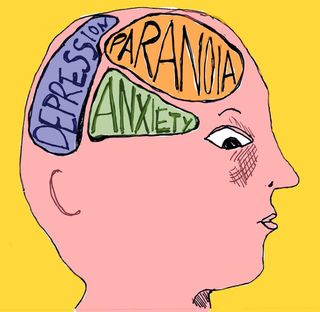Often it’s difficult to know who will be responsible for a deadly mass shooting. This time it was not.
The train wreck that was Devin Patrick Kelley’s life made it likely that he would be the one.
Police and court records in New Mexico, Colorado, and Texas paint the picture of a violent man whose life was fraught with broken relationships and multiple criminal convictions. The signs warning of untreated mental illness were there:

- Before graduating from New Braunfels High School in 2009, Kelley had amassed at least seven suspensions for insubordination, profanity, dishonesty, and drugs.
- In Spring 2010, after two months of basic training, he was dismissed from Goodfellow Air Force Base’s intelligence technical school where he hoped to become a fusion analyst. He was reassigned to the less demanding job of traffic management apprentice. When Kelley struggled in that job, he was moved to the Holloman Air Force Base and assigned to the 49th Logistics Readiness Squadron. Yet his emotional health was so poor that he was unable to log incoming supplies in the receiving department.
- Punished by his superiors, Kelley was tasked with mopping floors or scrubbing toilets. More than once, his peers watched Kelley rage and heard him shout, “I want to kill them.”
- He snuck a gun onto the Air Force base.
- In April 2012, he was arrested and detained after pointing a gun at his wife, hitting and choking her, and fracturing his baby stepson’s skull.
- On June 7, 2012, he escaped from Peak Behavioral Health Services in Santa Teresa, NM where he was treated for depression, anxiety, and ADHD. Chart notes indicated he was a “high-risk” patient.
- In November 2012, he pleaded guilty to two counts of assault and was sentenced to 12 months in confinement.
- In June 2013, released early from prison, he was discharged for bad conduct.
- On August 1, 2014, he was charged with cruelty to animals in El Paso County, Colorado for picking up a white and brown Husky by the neck, throwing the dog into the air, pounding him to the ground, and dragging him away.
- Since returning to his parent’s Texas home in 2014, Sheriff Mark Reynolds said deputies from Comal County Sheriff’s Office were called to Kelley’s house 17 times. A yellow flag on Kelley’s electronic file indicated his psychiatric issues.
The problem here was not that there were no warning signals. Rather, the problem was that there was nothing anyone could do to stop Kelley because our laws blindly favor individual rights over society’s welfare. We have seen too many tragedies in the past few years—Sandy Hook Elementary School, Aurora movie theatre, Columbine, Las Vegas—because we have not been able to listen to people who knew a disaster was brewing. We’ve witnessed enough tragedies to know that our laws protect neither individual rights nor public rights well. It’s time to make a change.
How could Kelley’s story have ended differently?
The New Braunfels community could have intervened when Kelley was in high school. A student suspended as many times as Kelley is begging for help. High schools are an ideal place to screen students for mental illnesses and direct them to places where they can get help. At Palos Verdes High School in California, Principal Charles Park developed a student wellness center creating a space within the high school that gives students a place to start difficult conversations before they are in acute distress.
Kelley could have been returned to Peak Behavioral Health Services and been forced to accept treatment in a safe environment from which he could not escape.
The Air Force could have entered Kelley’s name into federal databases barring convicted felons from buying firearms, as required by law. The Air Force could have ensured that Kelley’s veteran benefits, especially his right to mental health treatment, were retained. And, the Air Force could have put less priority on removing a problem from their ranks and shown greater concern for the impact doing so could have on society.
To be sure, although they have been silent, Kelley’s parents and siblings must have known Devin needed help. Their pain is pain I understand all too well. When my 18-year old daughter, diagnosed with bipolar disorder and borderline personality disorder, ran away with the heroin addict she’d met in a psychiatric hospital, I was powerless to help her. The doctors and social workers who’d treated her said she was incompetent to be on her own, yet there was nothing they could do either.
Of course, even if we are able to create better balance between individual and societal rights, someone like Kelley may open fire at a church, movie theatre, concert, or school. But at least then, we would be able to say we tried to prevent the tragedy.
References


